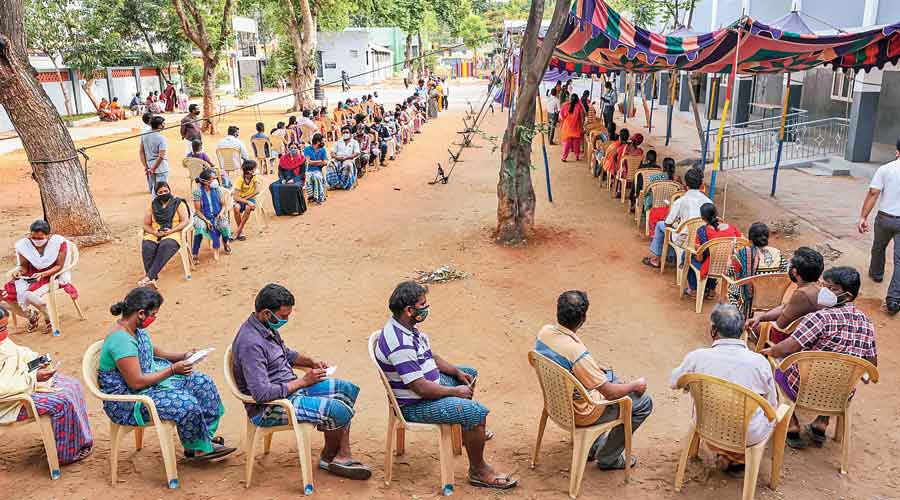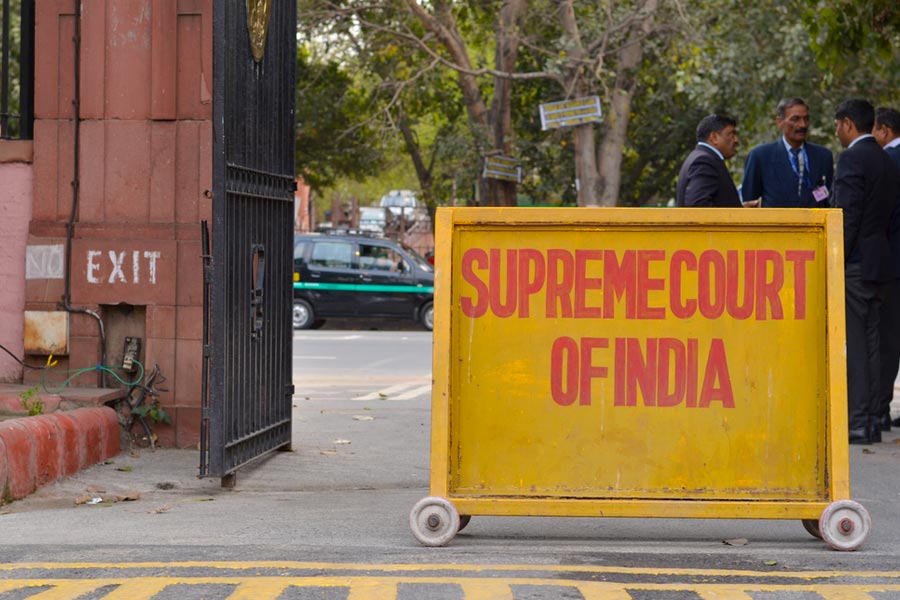India has detected 40 cases of a coronavirus variant called Delta plus that possesses multiple worrisome mutations linked to high transmissibility and immune evasion, triggering an alert to three states and efforts to determine whether it has impacted disease severity.
The cases in Maharashtra, Madhya Pradesh and Kerala — although in limited numbers — have prompted the Union health ministry to ask the three states to enhance public health measures to curb any further spread of the variant.
Scientists sequencing coronavirus genomes have spotted the Delta plus samples in Ratnagiri and Jalgaon in Maharashtra, Palakkad and Pathanamthitta in Kerala, and Bhopal and Shivpuri in Madhya Pradesh, the health ministry said.
The Delta plus variant has additional mutations to those in the so-called Delta variant — also designated as B.1.617.2 — a highly transmissible variant that was first detected in India and has spread to nearly 80 countries. The Delta variant is replacing other circulating variants in parts of the UK and the US.
“The Delta plus should be watched carefully — there are too few sequences to say anything about its public health implications at this time,” said Shahid Jameel, a senior virologist and director of the Trivedi School of Biosciences at Ashoka University.
“The coming together of a key mutation from another variant of concern in the Delta variant should be a cause for concern but not panic,” Jameel said. “We need to understand whether the effects of the mutations are neutral, additive, or bigger than the sum of the parts.”
A national scientific consortium sequencing the coronavirus has told the health ministry that the Delta plus variant appears to have increased transmissibility, stronger binding to receptors of lung cells and resistance to monoclonal antibodies — designer proteins used to treat Covid-19.
But what those mutations mean for the epidemic and disease is still unclear. “There is no clinical, epidemiological, or laboratory data yet on the Delta plus,” said Gagandeep Kang, a professor of clinical microbiology at the Christian Medical College, Vellore.
The Delta plus variant has also been found among sequences sampled in China, Japan, Nepal, Poland, Portugal, Russia, Switzerland, the UK and the US. As on June 18, 205 cases have been documented, more than half of them in the UK and the US, the health ministry said.
Union health secretary Rajesh Bhushan, in letters to chief secretaries in the three states, has urged “containment measures, enhanced testing, tracking and vaccination in districts and clusters where the Delta plus is found”.
Bhushan has also asked the states to send adequate samples of positive people to designated sequencing laboratories to enable researchers to probe the patterns of infection spread and try to correlate them with the clinical outcome of patients.
Public health experts say the containment measures remain the same irrespective of the variant, but the urgency is enhanced when highly transmissible variants are in circulation as they can spread and trigger large outbreaks within days to weeks.
While microbiologists in Pune, examining samples from central Maharashtra, had recognised the Delta variant as a possible source of concern by mid-February, some public health experts have said, those early alerts had not generated the intensity of response they should have from the Centre.
It was only after India’s second Covid-19 wave was well underway that the National Centre for Disease Control said the Delta variant had played a primary role in the surge.












